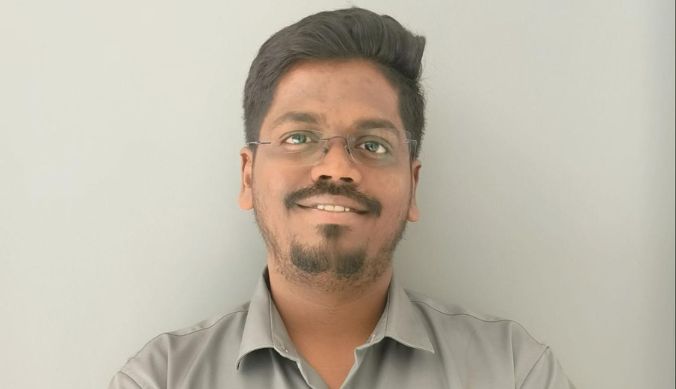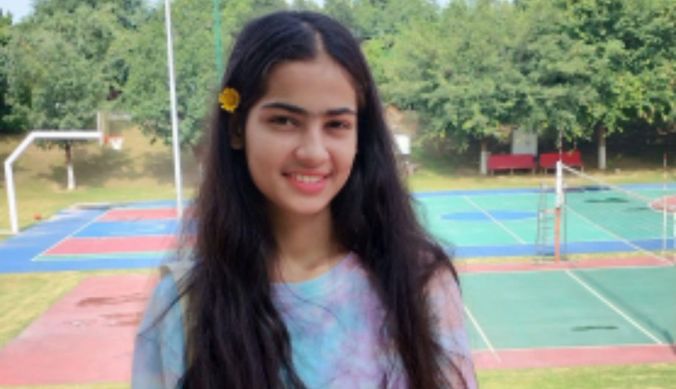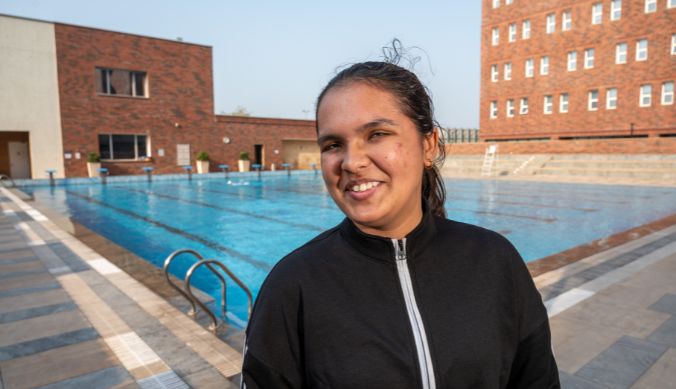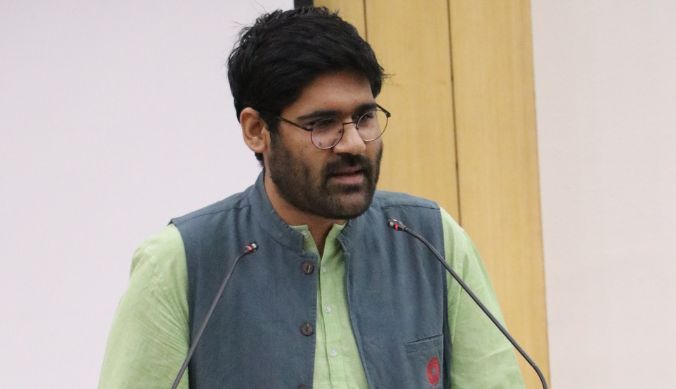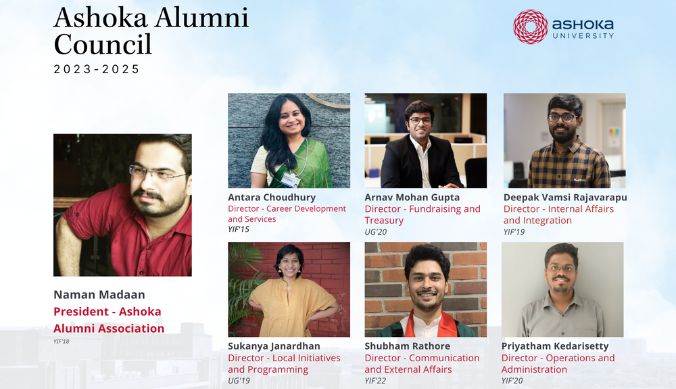‘Of New Checks and Old Mates’ by Sankalp Khandelwal (YIF ’19)
Featuring Sankalp Khandelwal's creative piece developed as an original project over his term at the Young India Fellowship. The piece was first published in the Final Draft, A Journal of the YIF Critical Writing Programme.
My mother suggests my father and I play chess, a proposition I do not find unpalatable. I know that even though my mother would not proclaim it, what she really wants is for me to spend some time with my father. Maybe even chat a bit. And, if God is merciful, she hopes that this will set in motion a series of fortunate events—the first game leading to many others in the future, each bringing the two of us, my father and I, closer together, our bond becoming ever stronger as we make move after move against one another.
My father inhales deeply before he gives his assent.
I rescue our chessboard from its years of disuse and start arranging the pieces. As I do so, my mind wanders back to a similar setting on a Sunday afternoon of about fifteen years ago: my father and I sitting across from each other, the chessboard between us, awkwardness permeating the room like an industrial room freshener. At the time, my father’s king—all on its own—brought down my feeble fortifications, took half of my pieces, returned to its ranks, and then sent the pawns for the final kill.
Never before that had I suffered such a humiliating defeat. Never since then have I been defeated so humiliatingly. In which universe does the king do all the hard work while the queen sits back and watches the drama unfold?
After arranging the board, I tell my father the ‘international’ rules that I know he is unacquainted with: the pawns sprint before walking, the rook is more powerful than the knight and the bishop, and see, this is how you castle, in one single move.
I learnt how to play chess when I was in primary school. I started with observing the men in my house—my grandfather, my father, his two brothers, and their sons—play with each other in the afternoon after lunch. Sometimes, one of my aunts joined too. But she was considered an unformidable player and was, therefore, avoided when one wanted a ‘good game’.
For months, I remained a curious spectator to the silent battles. I watched but did not comprehend. One day, after I expressed interest in learning the game, I was asked to come prepared the next day. All these years later, I don’t remember who took charge of my initiation, but I do recall that the following afternoon, I was so restless to start learning that I made a small ball of the roti my mom served me for lunch and stuffed it in my mouth all in one go.
That day, the rules I was taught were different from the ones I now know. My grandfather—who offered 20 rupees to anyone who could checkmate him— called them the ‘Indian rules’. The pawns didn’t sprint, the rooks barely mattered, and to castle you moved the king once like the pawn and the second time like the knight.
I took a liking to the game almost immediately. Unlike other games I played in those days—Ludo, cricket, WWE playing cards—there was no element of luck involved in chess. No dice, no tosses. No Rank 1 Hitman losing to a 500-pound Yokozuna. Chess was all focus, strategy, patience, and control. It did not demand of you to run fast or to hit hard or to cheat when nobody was watching. All that it asked was that you focus longer and harder and be more resilient than your opponent. And this came naturally to me.
After I finish explaining the new rules to him, my father protests. As the man of the house, he dislikes being at a disadvantage, hates being vulnerable. I tell him that this is how chess is played all over the world, that even though the rooks are holed up in the corner, they have the power to turn around games. Reluctantly, my father acquiesces.
“Where did you learn all of this?” he asks. “In college,” I reply.
Within the first few weeks at my undergraduate college, I joined the campus chess club, which essentially comprised a group of boys—including an international and a national player— who would play a few games in the sports room after classes. They were the ones who taught me the standard ‘international’ rules and forced me, through a series of defeats, to unlearn the chess knowledge my family had inculcated in me years ago.
In the same way that I discarded the ‘Indian’ rules for the ‘international’ ones in the sports room, I unlearnt many domiciliary rules in my English literature classes and instead adopted new and arguably ‘international’ charters. Lecture by lecture—as our class dissected writings of Dostoevsky, Blake, Flaubert, Woolf, Milton, Tagore, Marx, and their ilk—my vision became unblinkered. My world transformed. Idol worship gave way to atheism, blacks and whites transitioned to infinite shades of grey, boundaries of gender and sexuality expanded and dissolved, and politics saturated all aspects of the personal. Suddenly, anywhere and everywhere I looked, all I saw were specters of patriarchy, casteism, racism, and heteronormativity. I started questioning everything, from family traditions and festival rituals to why the hell did we worry so much about what people would say?
My parents did not welcome this newfound curiosity.
“Why do Indian women punish themselves by fasting all day on festivals?”
“You think you have become too clever by reading all your books? You can’t put a question mark on everything.”
“Why go to weddings of people we don’t like?”
“You are too young to understand. We need to do these things to live in society. Go get ready.” “All this dowry business is so wrong. Don’t you think Uncle should have just rejected the match?”
“That’s how it works there. You have to be more practical in life. Can’t just rely on bookish knowledge.”
Faced with such a famine of logic but too dependent on home to stir up a revolution, I began to emancipate myself. This process, unsurprisingly, fostered disaffection and resentment. Cracks materialised in our relationship and soon turned into deep-seated fault lines. Their traces remain to this day— years after we commenced the intricate work of de-estrangement.
Parenting, I have come to realise, resembles reverse osmosis more than a steady movement downstream. It is not just something that parents do to raise their kids, but also all the conscious and unthinking ways in which children raise their parents. Children initially parent by depending on you for everything and, later, by dragging you through the agonising process of un-depending, which culminates with the complete severance of the umbilical cord. Parents, on the other hand, parent with the same lens throughout their life—of protecting their children from harm.
Years ago, when I started un-depending, I tried to reduce mutual suffering with my parents. I meticulously strategised, instead of acting on impulses. I sacrificed the pawns—visiting insufferable relatives, skipping night outs, attending pujas—to get to the rooks and the queen—taking up jobs that I liked, studying things that I wanted, going on holidays my way. Now, we are past the stage of severance and have traversed a long distance. We now know that there are some things we can never change, and realise that there is merit in becoming accustomed to the discomfort. From a place where an inter-religious marriage would have been detestable to them, my parents have come to a point where they may just tolerate, even celebrate, a same-sex union. I, meanwhile, show enthusiasm for the Diwali puja, going as far as singing bhajans in chorus with my mother.
As the game advances, I gradually realise that even though my father agreed to the new rules, he does not really believe in them. He frowns when I exchange my knight with his bishop in the first few moves.
“Why are you being destructive?” he asks. “They are equally valuable. That’s how the game is played.” A few moves later, he willingly exchanges his rook with my bishop. “I told you the rook is more valuable,” I say
My father remains quiet.
His outdated approach doesn’t stand a chance against my advanced know-how. Checkmating him is child’s play. For neither of us, this was a ‘good game’. I sense my father is upset. To be reminded that your long-cherished beliefs are flawed can be painful. As can the reminder that your childhood heroes are imperfect.
I pack up and return the board to its resting place, for what looks like will be another period of hibernation.
***
About the Author:
Most of my life after school has revolved around editing and writing. As I studied towards an English (Hons) degree at Hans Raj, I wrote more than 500 SEO articles as a freelance writer. Graduation done, I joined a publishing house in Delhi as a copy and commissioning editor, where I helped dozens of authors hone their fiction for three years. The necessity to fatten my paycheck thereafter led me to the corporate parks of Gurgaon, where I edited business reports and proposals for four years. Then I took a break and joined YIF.
At YIF—both in Critical Writing and other courses—my writing oeuvre expanded to include a rich variety of genres, including a manifesto on validation, a critical essay on Kabir’s poetry, and the narrative non-fiction piece featured in this journal. I also found a mentor in Professor Janice Pariat, whose feedback and recommendation helped me secure a scholarship to study creative writing at a summer school in Edinburgh—an experience that I fondly remember as a month of writing and reading in the parks, cafes and libraries of the stunning Scottish city.
Since graduating from YIF, I have been working with the communications team at a global management consulting firm.
***
About the Final Draft: The Journal of YIF Critical Writing:
The goal of Final Draft, the annual journal of YIF Critical Writing, is to showcase both the range—in topic and genre—and strength of writing in a student body that is itself highly diverse in terms of its educational, disciplinary, professional, geographic, linguistic, and socio-economic backgrounds. Through the process of writing multiple drafts, student-authors discover their own unique voice, and recognise writing as an ongoing, open-ended activity as signalled by the title of the journal itself. As the Fellows learn to bring critical thinking tools to the drawing board, readers of Final Draft can witness a clear attempt by them to negotiate with texts and social phenomena as they make sense of the world around them.
About the Critical Writing Programme at the YIF:
The YIF Critical Writing Programme has few visible contextual precedents within the Indian higher education system. Acknowledging the importance of writing as central to processes of knowledge acquisition, production, and consumption, the programme has developed a pedagogy geared towards building critical reading, writing and thinking skills to help Fellows engage with the world of ideas and enable them to develop and express their own ideas in a well-reasoned, lucid, and engaging manner. We do this by helping students innovate with genres of writing across different disciplines to develop a metacognitive awareness regarding their own reading and writing practices. These skills act as building blocks for the liberal arts education they receive at Ashoka University and enhance their abilities to navigate academic, professional, and social spheres once they graduate from the Fellowship.









